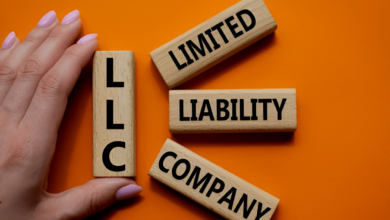How UK Small Businesses Can Legally Protect Intellectual Property
Intellectual property protection is vital for UK small businesses. Learn how to safeguard trademarks, patents & copyrights with our expert legal guide.

Intellectual property (IP) protection is crucial for UK small businesses to safeguard their innovations, brand identity, and creative works. Without proper legal measures, competitors can exploit your ideas, leading to lost revenue and market share. Whether it’s a unique product, a memorable logo, or proprietary business processes, securing your IP rights ensures long-term growth and prevents costly legal disputes. This guide explores the essential steps small businesses must take to legally protect intellectual property in the UK.
Understanding the different forms of IP protection such as trademarks, patents, copyrights, and trade secrets can be overwhelming for small business owners. However, taking proactive steps early on can save time, money, and stress in the future. From registration processes to enforcement strategies, this article provides a comprehensive roadmap for UK small businesses looking to secure their intellectual assets. By implementing these legal safeguards, entrepreneurs can focus on growth while keeping their innovations safe from infringement.
How UK Small Businesses Can Legally Protect Intellectual Property
Understanding Intellectual Property and Its Importance
Intellectual property (IP) refers to creations of the mind, such as inventions, brand names, designs, and artistic works. For UK small businesses, IP is often their most valuable asset, differentiating them from competitors. Without proper protection, businesses risk losing their unique selling propositions to copycats. The UK offers several legal protections for IP, including trademarks, patents, copyrights, and design rights. Each type covers different aspects of a business, ensuring comprehensive security. Small businesses must identify which IP rights apply to their operations and take steps to register and enforce them.
Protecting Your Brand Identity
A trademark protects logos, brand names, slogans, and other identifiers that distinguish your business. Registering a trademark with the UK Intellectual Property Office (UKIPO) prevents others from using similar marks in your industry. To secure a trademark, conduct a thorough search to ensure no existing marks conflict with yours. Once approved, your trademark lasts indefinitely, provided you renew it every ten years. This protection is crucial for brand recognition and customer trust, preventing competitors from capitalizing on your reputation.
Safeguarding Inventions and Innovations
If your business develops a new product or technology, a patent grants exclusive rights to its use and commercialization. The UK patent system requires that your invention is novel, inventive, and industrially applicable. Applying for a patent involves a detailed submission to the UKIPO, including technical descriptions and claims. The process can take several years, but once granted, a patent provides 20 years of protection. Small businesses in tech, manufacturing, and pharmaceuticals benefit significantly from securing patents early.
Securing Creative Works
Copyright automatically protects original literary, artistic, and musical works, including website content, software, and marketing materials. Unlike trademarks and patents, copyright does not require registration in the UK, but enforcement is stronger with documented proof. Businesses should use copyright notices (©) and retain drafts to establish ownership. In cases of infringement, copyright holders can take legal action. This protection is vital for creative agencies, authors, and digital content creators who rely on original works for revenue.
Protecting Product Aesthetics
Design rights cover the visual appearance of products, including shapes, colors, and textures. The UK offers registered and unregistered design rights, with registered designs providing stronger legal protection for up to 25 years. Small businesses in fashion, furniture, and consumer goods should consider registering designs to prevent imitation. The application process involves submitting images of the design to the UKIPO, ensuring exclusive rights to its commercial use.
Keeping Business Information Confidential
Not all IP needs registration trade secrets like recipes, algorithms, and customer lists can be protected through confidentiality agreements (NDAs). Employees and partners should sign NDAs to prevent unauthorized disclosure. Unlike patents or trademarks, trade secrets remain protected indefinitely as long as they stay confidential. Businesses must implement strict Domestic policy to safeguard sensitive information from leaks or industrial espionage.
Enforcing Your Intellectual Property Rights
Registering IP is only the first step enforcement is critical. Monitor the market for infringements, and send cease-and-desist letters to violators. If necessary, pursue legal action through IP courts or mediation. The UK offers civil and criminal penalties for IP theft, including fines and injunctions. Small businesses should work with IP solicitors to handle disputes efficiently, ensuring their rights remain intact.
International IP Protection for UK Businesses
If your business operates globally, consider international IP protection. The European Union Intellectual Property Office (EUIPO) and World Intellectual Property Organization (WIPO) offer systems like the Madrid Protocol for trademarks and the Patent Cooperation Treaty (PCT) for patents. Expanding protection prevents foreign competitors from copying your brand or inventions. Small businesses should assess key markets and file international IP applications accordingly.
Cost-Effective IP Protection Strategies
IP registration can be expensive, but small businesses can use cost-saving strategies. The UKIPO offers fee reductions for startups, and online trademark applications are more affordable than legal consultations. Additionally, prioritizing core IP assets (like a flagship product or brand name) ensures budget efficiency. Government grants and IP insurance can also offset legal costs.
Common IP Mistakes Small Businesses Should Avoid
Many small businesses make critical IP mistakes, such as failing to conduct trademark searches or neglecting employee IP clauses. Others assume copyright is enough without proper documentation. To avoid pitfalls, consult an IP specialist early and implement comprehensive IP policies. Regular IP audits help identify vulnerabilities before they become legal issues.
Read More: Understanding Overtime and Wage Laws in North Carolina
Conclusion
Intellectual property (IP) protection is not just a legal formality it’s a vital business strategy for UK small businesses looking to thrive in competitive markets. By securing trademarks, patents, copyrights, and other IP rights, entrepreneurs can safeguard their unique ideas, brand identity, and creative works from exploitation. The UK’s robust legal framework provides accessible avenues for protection, but it requires proactive steps from registration to enforcement to be truly effective.
Failing to prioritize intellectual property protection can leave small businesses vulnerable to costly disputes and lost opportunities. However, with the right knowledge and strategic approach, business owners can confidently navigate IP law and build a foundation for long-term success. Whether through domestic registration or international expansion, investing in IP protection today ensures that your innovations remain exclusively yours tomorrow giving your business the competitive edge it deserves.
What is the most important type of IP protection for small businesses?
For most UK small businesses, trademarks protecting brand names/logos and copyrights covering original content are essential first steps, while product-based businesses should prioritize patents or design rights.
How much does it cost to trademark a business name in the UK?
Registering a trademark with the UKIPO starts at £170 for one class of goods/services, with additional fees for extra classes – far cheaper than rebranding after infringement.
Can I protect my IP without registering it?
Some rights like copyright and unregistered design rights apply automatically, but registration (for trademarks/patents) provides stronger legal protection and enforcement power.
What should I do if someone copies my business’s intellectual property?
First gather evidence, then send a cease-and-desist letter – for serious cases, consult an IP solicitor about court injunctions or damages claims through the Intellectual Property Enterprise Court.
How long does IP protection last in the UK?
Durations vary trademarks last indefinitely (renewable every 10 years), patents 20 years, copyright typically 70 years after creator’s death, while registered designs protect for up to 25 years.











